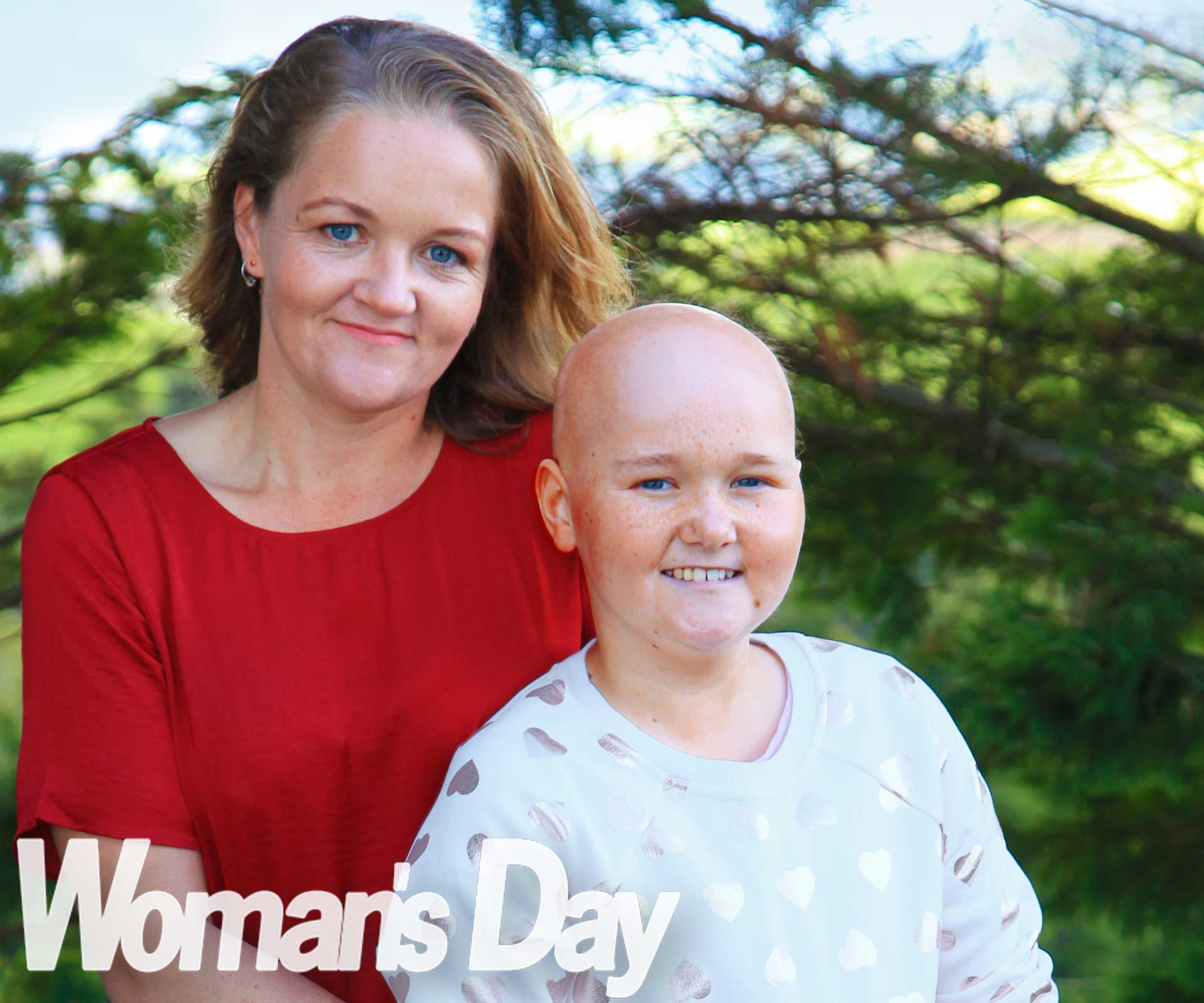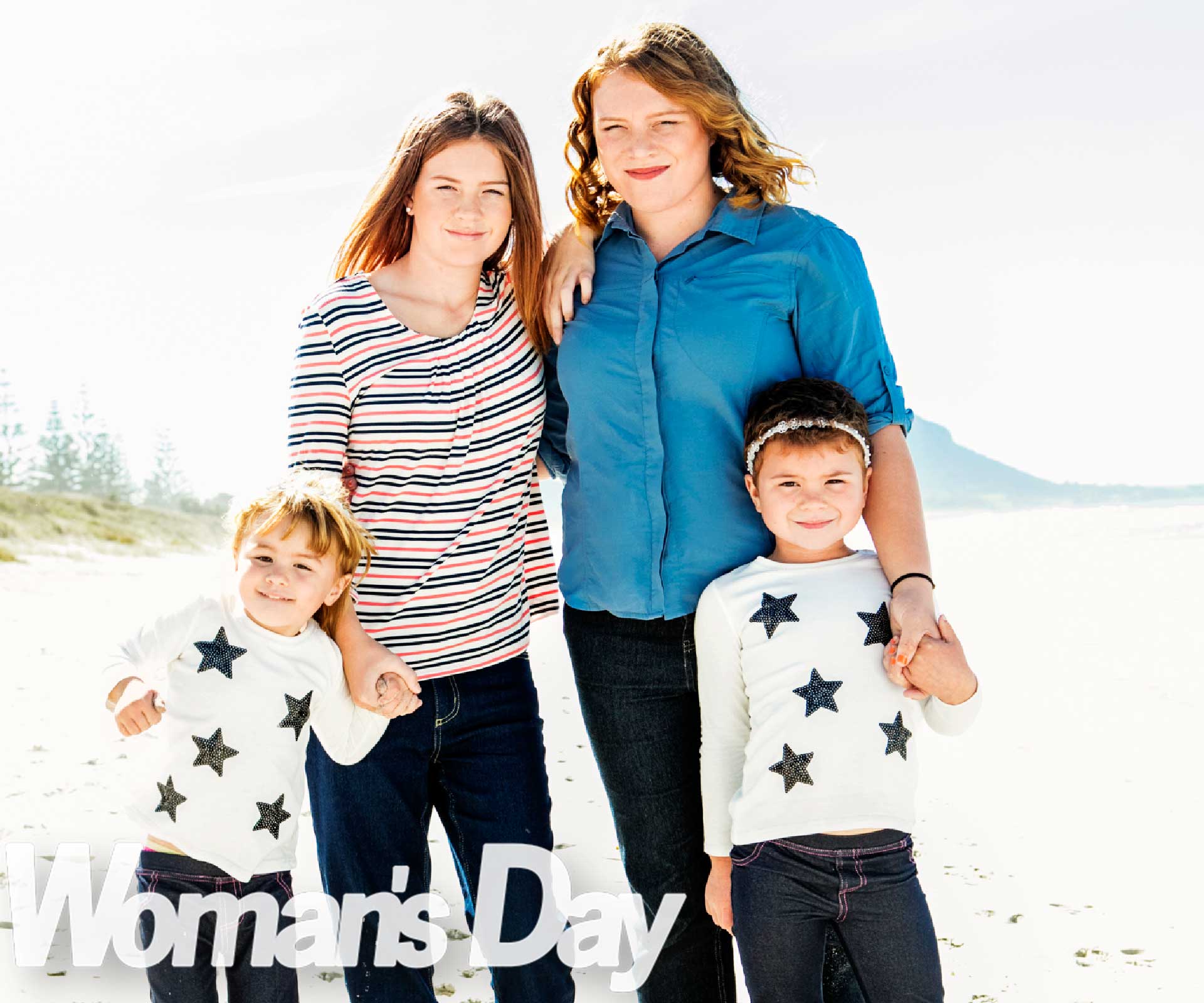Northland mum-of-four Rachel Carroll still wells up when she recalls the day she asked her 11-year-old daughter Trinity, “How many children would you like?”
Days earlier, the youngster had been diagnosed with medulloblastoma, a rare brain tumour. With radiotherapy and chemotherapy scheduled to begin immediately, doctors informed Rachel, 30, that the treatment would eradicate nearly all of her daughter’s ovarian tissue and eggs, leaving her with just a two percent chance of ever conceiving.
“I want two kids,” Trinity replied. “One of each. By the time I’m 30.”
Rachel braced herself and asked, “How would you feel if you could never have children?”
The response – a flood of tears – was the only motivation the devoted mum needed to have the gravely ill and inconsolable youngster’s ovarian tissue harvested and frozen so that she might one day be able to fulfil her dreams.
“I knew the harvest was quite an invasive procedure,” explains Rachel, “but even when Trinity was a lot younger, she would always be the one holding the babies, getting their nappies and doting on them.
“‘These are my babies,’ she would say. ‘When I grow up, I want to be a marine biologist – and a mum!’”
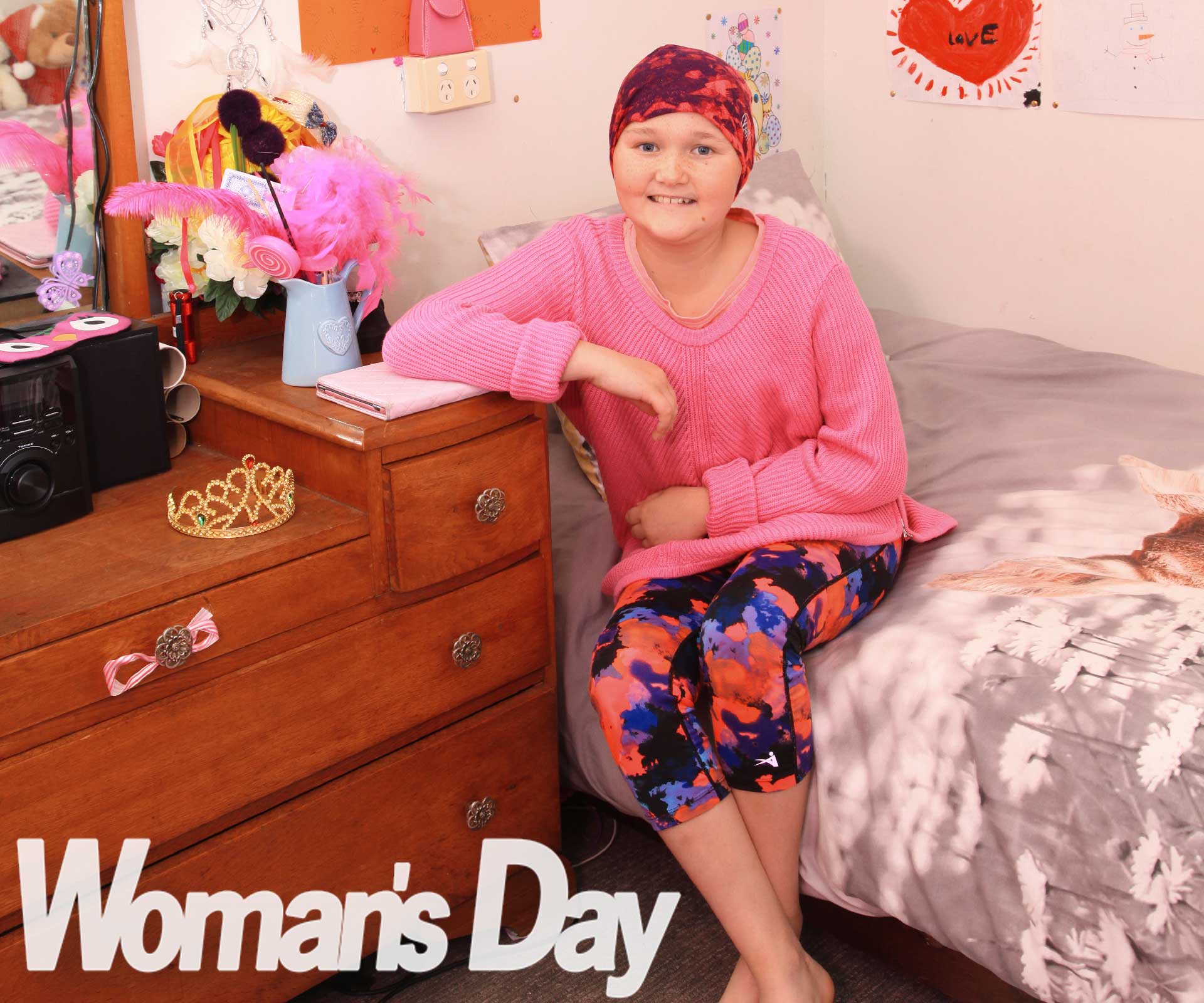
Trinity received blood from 348 donors during her treatment. Mum Rachel believes those people are lifesavers.
The Waipu family raised $5000 towards Trinity’s medical costs via Givealitte so that she could undergo the $930 tissue harvest and afford the ongoing $500 a year needed for storage.
Fast-forward two years and Trinity, now 13, is in remission, thanks to the radiotherapy and chemo – as well as 55 litres of lifesaving blood from 348 people who donated via the New Zealand Blood Service.
The organisation, which celebrated World Blood Donor Day on June 14, needs to collect more than 168,000 blood donations every year, which amounts to more than 3000 donations a week.
“Trinity has had so many transfusions over the past two years,” tells Rachel. “It truly has saved her life.”
The teen was diagnosed with medulloblastoma in October 2015, five months after her mum first noticed she was acting strangely.
“She was getting dizziness and headaches, and the slightest thing would make her angry,” tells Rachel. “It was like treading on eggshells. We were going to the doctor once a week, then two or three times a week, but they put it down to hormones.”
Eventually, things got so bad that Rachel decided to take Trinity to hospital. Despite the youngster being unable to walk in a straight line, Rachel’s concerns were brushed aside and she was told to take her girl home.
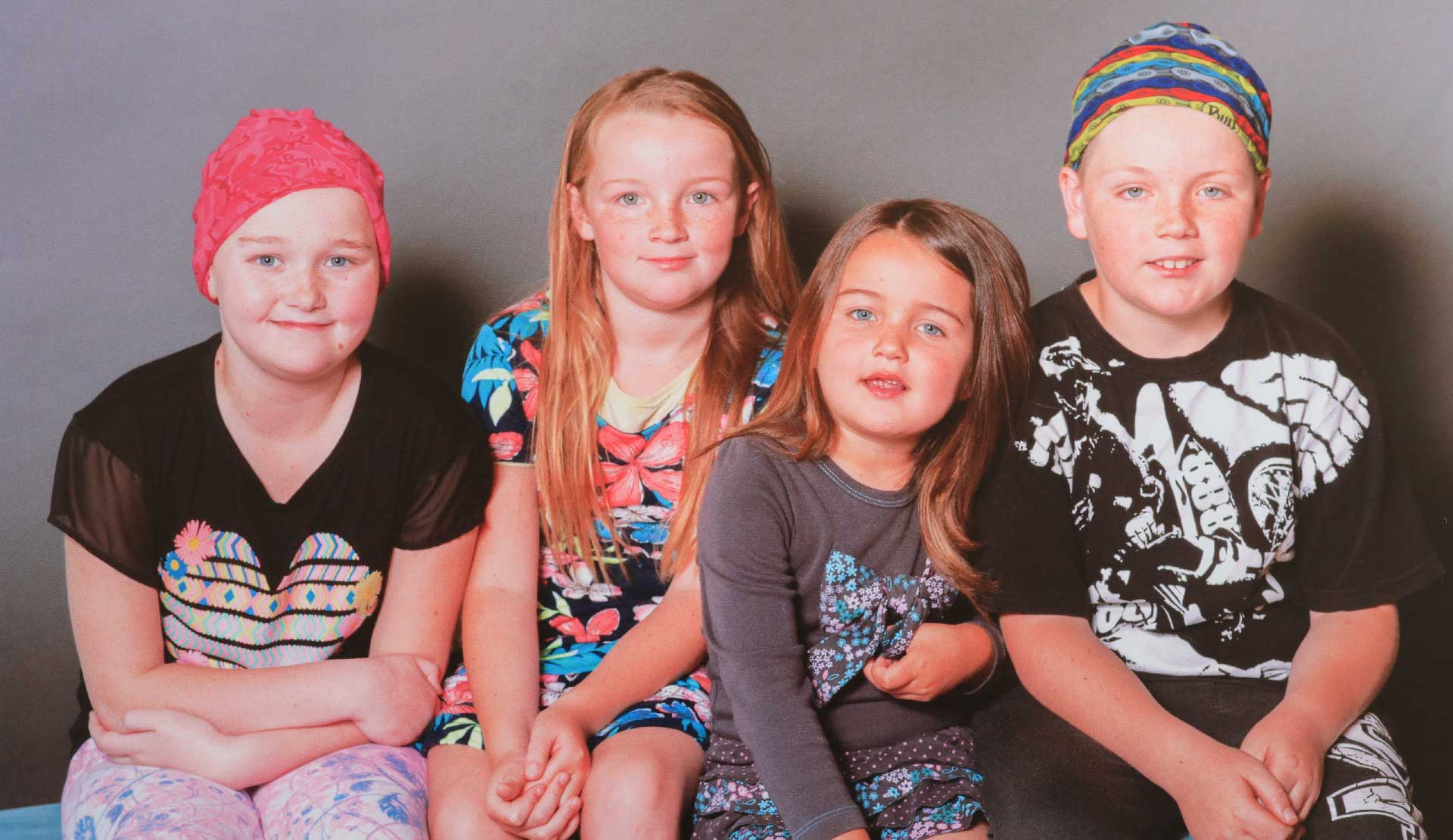
The plucky teen with her siblings (from left) Tanesha, nine, Calais, six, and Chevy, 11.
“I was beside myself,” says Rachel. “I knew something was seriously wrong and they were trying to send us away.”
Luckily, a doctor overheard her pleading with medical staff and ordered a CT scan, which revealed that Trinity had a rare brain tumour.
“If we had gone home and left it another few hours, the surgeon said she probably would have had a stroke or seizure and died,” says Rachel.
Within an hour, a helicopter was delivering the stunned mum and her sick little girl to Auckland’s Starship children’s hospital, where Trinity underwent a six-hour operation that required multiple blood transfusions and removed 99% of the walnut-sized tumour.
“When I kissed her goodbye before surgery, I wondered, ‘Is this going to be the last time I hear my daughter’s voice?’” recalls Rachel.
“When she finally came out, opened her eyes and said, ‘Mum’, it was just as exhilarating as when I first gave birth to her and held her in my arms.”
Trinity was at Starship for the next five months, with Rachel and her partner David living at Ronald McDonald House, which provides accommodation for the families of seriously ill kids.
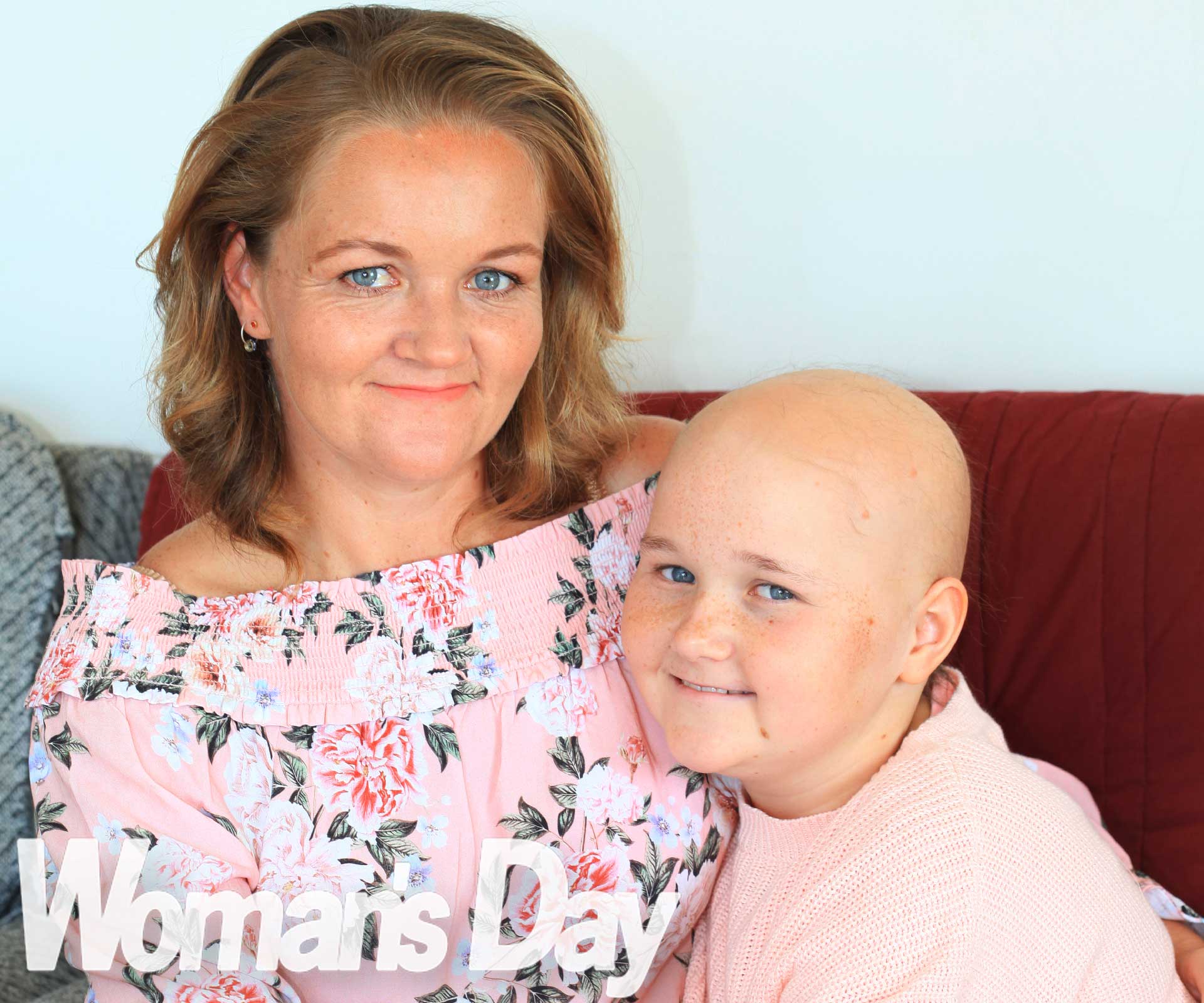
“The staff have been nothing short of amazing,” tells Rachel. “When we arrived, we never knew we would be staying so long, but we’ve made lifelong friends – both staff and other families.”
Throughout her recovery, Trinity has come close to death on several occasions and needed even more blood transfusions. Rachel says, “Watching her go from death’s door to seeing the colour flood back into her cheeks was amazing. It brought home how crucial it is that people donate blood. Without it, Trinity wouldn’t be here.”
Now back at school, Trinity – who is still fed overnight via a tube – has a long road ahead, but she’s on the mend. The proud owner of energetic cat Gumball and a loving sister to her younger siblings, the aspiring scientist still has her heart set on becoming a marine biologist.
And thanks to the pioneering ovarian-tissue harvest and those blood transfusions, Trinity’s dreams of one day becoming a mum are now a distinct possibility.
“Just knowing that when the time is right, she can have the tissue put back in and have the chance to conceive makes a huge difference,” tells Rachel. “If it does work, it works – and if it doesn’t, she’ll always know we tried. We’re very lucky to be where we are today.”
